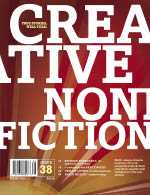Spring Blossoms

Spring brings forth a number of wonders, not the least of which are the quarterly editions of so-called small literary magazines. Since I am graced to be on the mailing lists of a number of my favorites, I am happy to note some highlights.
Ploughshares (Spring 2010, Vol 36), which is dependable in its high quality and ever-intriguing variety, is also one of a few publications that are always guest-edited—in this instance by Elizabeth Strout. The table of contents is available online, and aside from the usual mix of knowns and yet-to-be-knowns, Strout appears to have leaned heavily on including poetry. And as is often the case, the guest editor’s introduction has resonance.
A Public Space (Issue 10) is, as the number 10 indicates, a relative babe in the literary woods, though certainly its creators (Brigid Hughes) are not. The issue features an entertaining admixture of poetry and prose—fiction and non—with Alex Soth’s “Las Vegas Birthday” and Lawrence Weschler’s commentary on Soth.
Though Creative Nonfiction, which calls itself “the voice of the genre,” has been around for a while, Issue 38 represents its transformation from a more stolid literary journal to a contemporary magazine (at least at first blush). Lee Gutkind, who is the godfather of this genre and has presided over CNF since its inception, points out:
Issue 38 contains new essays by Carolyn Forche, Bill McKibben, and others; columns by Phillip Lopate and Richard Rodriguez; a timeline of Creative Nonfiction’s history (1993—2010); thoughts about the future of literary magazines from Ian Morris, the outgoing editor of TriQuarterly; an armchair guide to stunt writing; David Shields’s Required Reading; and an encounter with Dave Eggers.
All in all, a righteous buffet of tasty prose.
